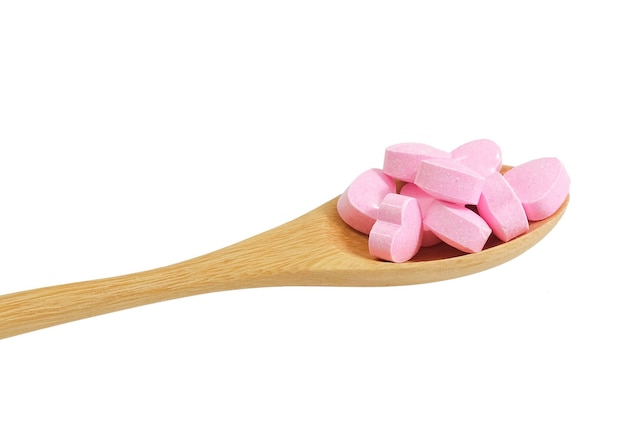Biotin in Animals and Humans
Biotin is vital for animals when it comes to processing proteins and turning sugar into usable energy. It’s also essential for hormone production and keeping blood sugar levels steady. Biotin supports the health of hair, skin, and nails. Mammals, including humans, can’t produce biotin on their own, so they need to get it through their diet.
Biotin deficiency, while rare, can be quite dangerous. It’s particularly crucial during pregnancy, as a lack of biotin can lead to birth defects. Common symptoms of biotin deficiency include brittle nails, hair loss, muscle pain, nausea, fatigue, anemia, and dry skin.
Not All Sources of Biotin Are Equal
Biotin exists in two forms in living cells: free biotin and protein-bound biotin. Protein-bound biotin, as it implies, is attached to proteins and is common in bacteria and animal cells. Free biotin is more prevalent in plants.
Our bodies can use both types of biotin. However, free biotin is more immediately available for use because it doesn’t need to be separated from a protein. On the other hand, protein-bound biotin requires an extra step to be converted into a usable form. Due to its high free biotin content, plant-based foods are typically more efficient dietary sources of the vitamin than animal-based foods.
Protein-Bound Biotin Sources
While many foods contain some biotin, the amount in most is minimal from a nutritional perspective. However, some foods are rich in biotin. Organ meats like kidneys and liver are the most concentrated sources. Other rich, animal-derived sources include milk, dairy products, and seafood. Egg yolks are also high in biotin, but they contain a chemical that inhibits biotin absorption. Eating a lot of egg whites could actually lead to a biotin deficiency.
At Global Healing, we highly recommend a raw, vegan diet, though we acknowledge that not everyone will choose this lifestyle. If you must consume animal products, opting for organic options when possible can reduce, but not eliminate, some of the health risks associated with meat and dairy consumption.
Plant-Based Biotin Foods
Although many animal-sourced foods contain biotin, it’s usually in protein-bound form. Plants, however, contain free biotin, which is more readily absorbed by the body. This makes it entirely feasible to get sufficient biotin from a vegan diet. There are numerous other health benefits to following a plant-based diet, and it’s a choice we recommend.
Understanding biotin’s importance is still relatively new, and nutritional experts are still developing accurate methods for measuring biotin content in foods. As a result, biotin content estimates can vary greatly for some foods and are completely absent for many others. After extensive research, we’ve compiled this list of top biotin-rich foods. Keep in mind that nutrient values can vary based on factors such as where the food was grown.
Nuts
Nuts are generally one of the best sources of free biotin. For instance, 100 grams of pecans contains about 65 micrograms (mcg) of biotin, while the same amount of walnuts contains 87 mcg. Nuts are also great for energy and are packed with omega fatty acids and other heart-healthy nutrients.
Sunflower Seeds
Sunflower seeds are heart-healthy, high in magnesium, and rich in antioxidants. They’re also an excellent source of biotin, providing 252 mcg per 100 grams.
Legumes
Legumes, especially green peas, are another excellent source of biotin. Whole, raw, dried peas have 34 mcg of biotin per 100 grams, while lentils offer 23 mcg. Most legumes are also high in folic acid and aid digestion.
Cauliflower
Cauliflower, a cruciferous vegetable, is great for liver detoxification and is loaded with healthy nutrients, including biotin. A single serving offers up to 5 percent of your daily biotin requirement, ranging from 2 to 17 mcg. Cauliflower is also rich in vitamin C and other health-promoting compounds. It’s delicious as a raw snack and versatile in recipes.
Bananas
Most fruits are not rich in biotin, but bananas are an exception. A medium-sized peeled banana (about 100 grams) contains 5.5 mcg of biotin. Bananas are also a good source of dietary fiber, potassium, manganese, calcium, iron, magnesium, phosphorus, and vitamins A, C, and B6.
Cereals
Many cereal grains contain biotin. Rice bran has a particularly high concentration, with 60 mcg per 100 grams. Barley and oatmeal offer 31 and 24 mcg, respectively.
Avocados
Avocados have become very popular, and for good reason. They are a good source of biotin, with one whole avocado containing up to 10 micrograms. So, don’t hesitate to enjoy some organic guacamole.
Other Good Sources of Biotin
Other good sources of biotin include carrots, leafy green vegetables, tomatoes, raspberries, and mushrooms. Yeast also has an incredibly high content of biotin, as do yeast-derived products like whole-grain bread.
Top Biotin Foods
Vegan Food Sources of Biotin
| Food | Biotin Content (mcg/100 grams) |
|---|---|
| Sunflower seeds | 252 |
| Walnuts | 87 |
| Pecans | 65 |
| Rice bran | 60 |
| Green peas, dried | 34 |
| Barley | 31 |
| Oatmeal | 24 |
| Lentils, fresh | 23 |
| Cauliflower | 17 |
| Mushrooms | 16 |
| Avocados | 10 |
How Much Biotin Do You Need?
There’s still much to learn about biotin compared to other vitamins, and there is no official daily recommended intake. Estimates vary significantly, with the U.S. National Library of Medicine recommending at least 30 micrograms daily, while the National Institutes of Health (NIH) suggests up to 300 micrograms for adults.
Based on experience, it’s advisable to aim for the higher end of the recommended spectrum. Because biotin is a water-soluble vitamin, it doesn’t build up in your body like fat-soluble vitamins. Excess biotin is simply excreted through urine, so regular replenishment is necessary. Individual requirements may vary, so use the following chart as a general guideline for daily intake:
| Life Stage | Adequate Intake (AI) for Biotin, Daily |
|---|---|
| Infants | 50 mcg |
| Children under 4 | 150 mcg |
| Adults and Children Over 4 | 300 mcg |
Generally, adults need more biotin than children, and pregnant or breastfeeding women may need more than other adults. Various health conditions or deficiencies can influence your biotin requirements, so consult your healthcare professional for personalized guidance.
Incorporating Biotin into Your Diet
Biotin is found in a wide variety of foods. With thoughtful planning and a focus on whole, real foods, obtaining enough biotin through diet is entirely achievable for most people. Biotin is also produced by the good bacteria in your gut, though the extent of its contribution to your overall supply is unclear. Ultimately, gut-produced biotin adds to the biotin you get from food.
Be wary of products like shampoos and lotions that claim to contain biotin. Biotin isn’t easily absorbed through hair or skin, so these products won’t provide the vitamin’s full benefits. Ingesting biotin is the most effective way to get it into your system.
If your diet isn’t providing enough biotin or if you have a deficiency, taking a supplement could be beneficial. For a high-quality option, consider Global Healing’s Biotin, a natural, vegan supplement derived exclusively from plant sources. Always do your research and talk to your healthcare practitioner to determine the best option for your unique needs before starting any new supplement.



